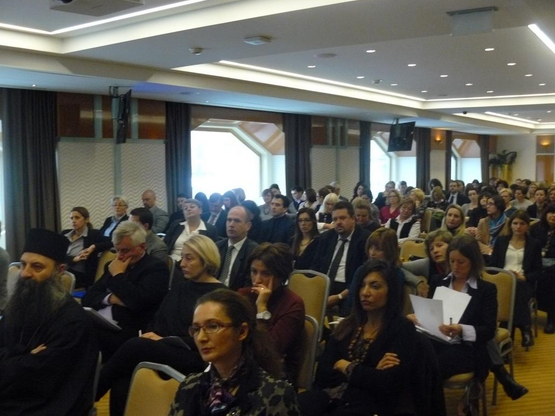Ombudswoman Tena Šimonović Einwalter participated on 15 October 2024 in Brussels in the central event marking the adoption of EU directives that will strengthen the fight against discrimination and lead to greater equality for citizens in EU Member States, including Croatia.
These directives will provide citizens with better protection against discrimination by strengthening equality bodies, including the institution of the Ombudswoman. For the first time, the directives introduce legally binding standards for these institutions, and each EU Member State will be required to implement them into its national legal system within two years.
The event, entitled “Together for Equality, Stronger for All: Celebrating the Adoption of Standards for Equality Bodies,” was organised by the European Network of Equality Bodies, Equinet, with the aim of bringing together key individuals and organisations that contributed to this historic development. Equinet has for years advocated for the adoption of these directives and, in cooperation with the European Commission, supported their preparation and subsequently participated indirectly in the related negotiations.
One of the most significant contributions to the entire process came from Ombudswoman Šimonović Einwalter (read more here), who therefore played a prominent role in the event. At the request of the organisers, she shared with participants what this development means to her as someone who has dedicated her professional career to combating discrimination and advocating for binding standards for equality bodies at the European level. The Ombudswoman reminded those present of the years-long process, driven by threats and challenges to these bodies in some European countries, and motivated by the aim to ensure conditions for their independent and effective functioning, as well as of the contributions made by various stakeholders. She emphasised that while the success is a shared one, its greatest significance is for the equality bodies themselves, and ultimately for the citizens whom these bodies are meant to support. These bodies can only carry out their role adequately if they operate under secure conditions and are truly independent, as independence is their key characteristic that must be carefully ensured and protected.
The Ombudswoman then moderated a discussion on the priorities and challenges in the process of transposing these directives, which now lies ahead for all Member States. Participants in the discussion included a representative of Poland, the Director-General for Employment, Social Affairs and Inclusion at the European Commission, Mario Nava, Member of the European Parliament Krzysztof Śmiszek, and the Executive Director of the European Disability Forum, Catherine Naughton. Before the discussion, participants were addressed by Member of the European Parliament Alice Kuhnke, who served as rapporteur for the LIBE Committee on the proposed directives on equality body standards.
Event participants also had the opportunity to hear useful advice on effective advocacy for the successful transposition and implementation of EU legislation into national legal frameworks. Special emphasis was placed on opportunities for cross-sectoral cooperation and support, including among the high-level attendees of the event.
It is worth recalling that in May 2024, the Council of the European Union adopted the Council Directive on standards for equality bodies and the Directive of the European Parliament and of the Council on standards for equality bodies in the field of equal treatment between women and men and their equal opportunities in matters of employment and occupation.





